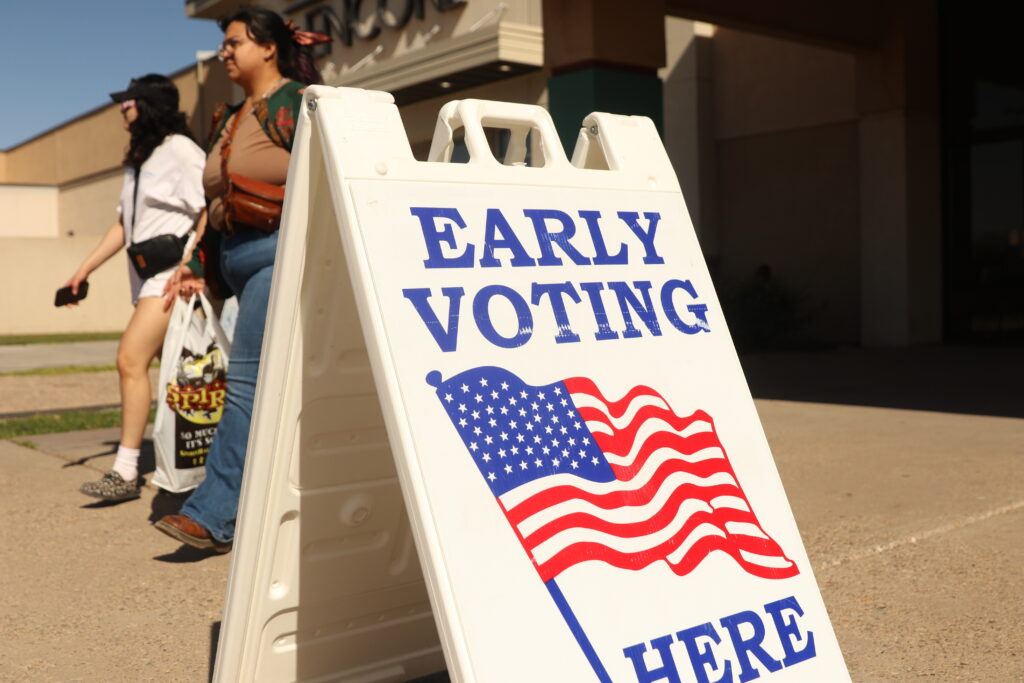The recent extreme weather events, particularly a record-breaking storm that struck Roswell, New Mexico, emphasize the growing threat that climate-related disasters pose not only to communities but also to the electoral process. On October 19, 2024, Roswell experienced a deluge of 5.78 inches of rain, leading to significant flooding and resulting in the city’s convention hall being rendered unusable as an Election Day voting center. The damage necessitated a swift response from Chaves County officials, who had to resort to seeking judicial approval to shift the polling site to St. Andrew’s Episcopal Church. This incident highlights the increasing impact of climate disasters on voting logistics, a reality that is becoming more common as these events escalate in frequency and severity due to climate change.
The implications of this storm extend beyond immediate recovery efforts and into the legislative domain, with New Mexico’s Secretary of State’s office urging lawmakers to consider new legislation aimed at enhancing the state’s preparedness for such climate-induced disruptions. Spokesman Alex Curtas indicated that proposed legal measures would be introduced during the 2025 legislative session, aimed at creating a more standardized set of procedures to handle election-related emergencies. Currently, any changes to polling locations necessitate judicial approval, suggesting that existing protocols may not be adequate for the pace with which climate events are occurring. Enhancements in communication and preparation among election officials, emergency management personnel, and county clerks are also deemed essential.
The aftermath of the Roswell storm serves as a reminder of the broader challenges arising from climate change, which have demonstrated a propensity to disrupt not just community life but also fundamental civic processes like voting. The impacts of flooding can extend to logistical barriers for voters, such as damage to infrastructure and the unavailability of resources needed for casting ballots. In light of these realities, County Clerk Cindy Fuller’s attempts to address concerns around mail-in ballots after the storm were met with challenges, as state regulations did not accommodate extensions for ballot requests, even in the face of natural disasters.
Representative Teresa Leger Fernández (D-N.M.) articulated the mental and emotional toll that such climate disasters evoke, especially as extreme weather events become more commonplace in areas not typically associated with them, such as the arid landscapes of New Mexico. The unprecedented nature of these storms can shatter residents’ perceptions of safety and security, as they grapple with the intersection of climate change and its tangible impacts on daily life. This realization drives home the necessity for adaptable and forward-thinking approaches to ensure that electoral processes can withstand the pressures inflicted by natural disasters.
Further complicating matters, other parts of New Mexico, such as Lincoln and Otero counties, have also faced severe weather challenges, yet their election plans remained intact despite widespread damage from both wildfires and flooding. In contrast, Mora County had previously been compelled to relocate polling locations due to significant wildfires impacting the 2022 primary elections. Such discrepancies highlight the uneven effects climate change can have across different regions, necessitating a comprehensive assessment of potential vulnerabilities within the electoral framework.
Across the United States, incidents resulting from hurricanes and other extreme weather events continue to disrupt elections in various states. North Carolina and Florida have reported significant disturbances due to Hurricanes Helene and Milton, where damaged infrastructure has hindered voters’ ability to register, receive mail ballots, and maintain power and communication services. As climate disasters unfold, the intersection of environmental and electoral challenges calls for innovative strategies to fortify the democratic process, ensuring that citizens can exercise their right to vote even amid the adverse effects of climate change.

